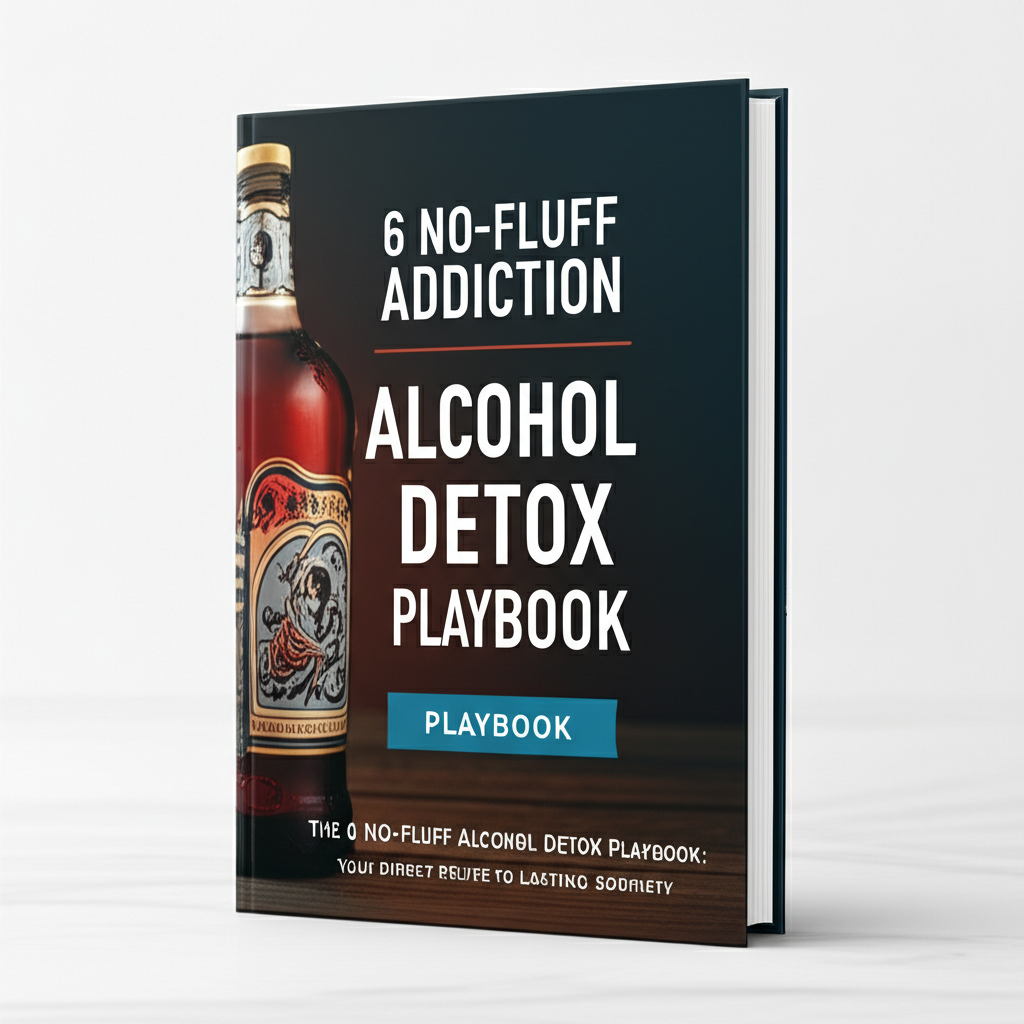The desire to break free from alcohol’s grip is a powerful, brave first step. For many, however, the path to sobriety feels daunting, shrouded in uncertainty about the detox process itself. Alcohol withdrawal can be a physically and psychologically challenging, even dangerous, experience. It’s not merely about willpower; it’s a complex physiological event that demands careful, often medical, attention.
Imagine standing at the foot of a mountain, knowing the summit holds the promise of a new life, but unsure which trail to take. This article is your guide. We’ll demystify the alcohol detox process, illuminating the four most effective and safest roadmaps available today. Our aim is to provide you with a clear, factual, and empathetic understanding of your options, empowering you to make an informed decision on your journey to lasting sobriety. This isn’t just about stopping drinking; it’s about reclaiming your health, your relationships, and your future.
Understanding Alcohol Detox: Why It’s Crucial (and Risky)
Before diving into specific roadmaps, it’s vital to understand what alcohol detox entails and why it’s a critical, often medically supervised, phase of recovery. Alcohol dependence develops when the body adapts to the constant presence of alcohol, becoming reliant on it to function "normally." When alcohol is removed, the body goes into a state of shock, leading to withdrawal symptoms.
The Dangers of Unsupervised Detox
Attempting to detox from alcohol without professional medical supervision is extremely dangerous and can be life-threatening. The body’s reaction to alcohol cessation can range from uncomfortable to severe. Risks include:
- Seizures: Potentially fatal, especially without medication.
- Delirium Tremens (DTs): A severe form of alcohol withdrawal characterized by confusion, rapid heart rate, high blood pressure, fever, hallucinations, and tremors. DTs can lead to cardiovascular collapse or respiratory arrest.
- Severe Dehydration and Electrolyte Imbalances: Can cause heart problems and kidney failure.
- Aspiration: Vomiting and inhaling stomach contents into the lungs.
- Psychological Distress: Intense anxiety, panic attacks, depression, and suicidal ideation can be overwhelming without support.
These risks underscore the importance of choosing a detox roadmap that prioritizes safety and medical oversight.
What Happens During Alcohol Withdrawal? Common Symptoms
Alcohol withdrawal symptoms can vary widely in severity and onset, depending on the individual’s drinking history, overall health, and genetic factors. They typically begin within 6-24 hours after the last drink, peak around 24-72 hours, and can last for several days or even weeks.
Here’s a general timeline and common symptoms:
- 6-12 Hours:
- Headache
- Nausea and vomiting
- Sweating
- Tremors (shaky hands)
- Anxiety
- Insomnia
- 12-24 Hours:
- Visual, auditory, or tactile hallucinations (seeing, hearing, or feeling things that aren’t there)
- Increased heart rate and blood pressure
- 24-72 Hours (Peak Severity):
- Seizures (generalized tonic-clonic seizures)
- Delirium Tremens (DTs): profound confusion, disorientation, severe agitation, fever, rapid heart rate, and severe hallucinations.
- Beyond 72 Hours:
- Symptoms gradually subside, but some individuals may experience Post-Acute Withdrawal Syndrome (PAWS), with lingering anxiety, depression, sleep disturbances, and cravings for weeks or months.
Understanding these symptoms emphasizes why medical professionals are crucial during detox to manage discomfort and prevent dangerous complications.
The 4 Best Alcohol Detox Roadmaps: A Path to Lasting Sobriety
Choosing the right detox path is a deeply personal decision, influenced by the severity of addiction, medical history, support system, and financial considerations. Here are four highly effective and safe roadmaps, each offering unique benefits.
Roadmap 1: Medical Inpatient Detox (The Gold Standard for Safety and Support)
Who it’s for: Individuals with moderate to severe alcohol dependence, a history of severe withdrawal symptoms (including seizures or DTs), co-occurring mental health conditions, or a lack of stable home environment. It’s often recommended for those with long-term, heavy alcohol use.
Medical inpatient detox takes place in a specialized facility, such as a hospital or a dedicated detox center. It offers the highest level of care and supervision, making it the safest option for most individuals.
What to expect:
- Comprehensive Medical Assessment: Upon admission, a team of doctors, nurses, and addiction specialists will conduct a thorough medical and psychological evaluation. This includes blood tests, physical exams, and an assessment of your drinking history and mental health.
- 24/7 Medical Supervision: You’ll be continuously monitored by medical staff who can immediately address any emergent withdrawal symptoms or complications. Vital signs (heart rate, blood pressure, temperature) are regularly checked.
- Medication-Assisted Treatment (MAT): Medications are administered to alleviate withdrawal symptoms, prevent seizures, and reduce cravings. Common medications include:
- Benzodiazepines (e.g., Ativan, Valium, Librium): Used to calm the nervous system, reduce anxiety, prevent seizures, and mitigate DTs. They are typically tapered off gradually.
- Anticonvulsants (e.g., Carbamazepine, Gabapentin): May be used to prevent seizures.
- Beta-blockers: To manage elevated heart rate and blood pressure.
- Nutritional Support: Many individuals entering detox are malnourished. Facilities provide balanced meals and often administer vitamins (especially B vitamins like Thiamine) to prevent complications like Wernicke-Korsakoff syndrome.
- Comfort and Safety: A safe, drug-free environment free from triggers and external pressures. Staff are trained to provide emotional support and reassurance during this difficult time.
- Transition Planning: Towards the end of detox (typically 3-10 days), the team will work with you to develop a comprehensive aftercare plan, which might include inpatient rehab, outpatient therapy, or support group involvement.
Pros:
- Highest level of safety and medical oversight.
- Access to immediate medical intervention for complications.
- Constant emotional and psychological support.
- Structured, trigger-free environment.
- Comprehensive aftercare planning.
Cons:
- Can be more expensive than other options.
- Requires time away from work, family, and daily responsibilities.
- Less privacy compared to home-based options.
Roadmap 2: Medical Outpatient Detox (Flexible Support for Milder Cases)
Who it’s for: Individuals with mild to moderate alcohol dependence, no history of severe withdrawal symptoms, a stable and supportive home environment, good physical health, and reliable transportation.
Outpatient detox allows you to live at home while attending daily or near-daily medical appointments at a clinic or doctor’s office. It offers more flexibility while still providing crucial medical supervision.
What to expect:
- Initial Medical Evaluation: A thorough assessment to determine if outpatient detox is safe for you. This includes physical exams, health history review, and an assessment of your addiction severity.
- Daily Check-ins (or frequent visits): You’ll visit the clinic regularly for medical monitoring, medication administration, and symptom checks. This allows medical staff to adjust your treatment plan as needed.
- Medication Management: Similar to inpatient detox, benzodiazepines and other medications are prescribed and monitored to manage withdrawal symptoms and prevent complications. Doses are typically administered or closely supervised.
- Support and Counseling: Many outpatient programs integrate counseling sessions, either individual or group, to address the psychological aspects of addiction and prepare for long-term recovery.
- Education: You’ll receive education about alcohol withdrawal, relapse prevention strategies, and healthy coping mechanisms.
Pros:
- Allows you to stay at home and maintain some daily routines.
- More affordable than inpatient detox.
- Offers a degree of privacy.
- Can be less disruptive to work and family life.
Cons:
- Requires a strong support system at home and a trigger-free environment.
- Does not offer 24/7 medical supervision; increased risk if complications arise between visits.
- Relies on the individual’s commitment to attend all appointments.
- Not suitable for severe dependence or those with a history of seizures/DTs.
Roadmap 3: Home Detox with Medical Supervision (A Rare, Carefully Managed Option)
Who it’s for: This is a highly specific and rare option, only considered for individuals with very mild alcohol dependence, excellent overall health, a robust and sober support system at home, and close proximity to emergency medical care. It is never recommended for individuals with any history of severe withdrawal symptoms or co-occurring medical/psychiatric conditions.
Crucial Caveat: This is not a DIY detox. It absolutely requires a doctor’s ongoing oversight, prescriptions, and frequent virtual or in-person check-ins. Attempting unsupervised home detox is extremely dangerous.
What to expect:
- Rigorous Medical Screening: An extensive evaluation by a physician to determine if home detox is genuinely safe. This includes a detailed medical history, physical exam, and potentially lab tests.
- Prescription Medications: A doctor will prescribe medications (e.g., benzodiazepines, anti-nausea meds) with clear instructions on dosage and administration. These medications are crucial for managing symptoms and preventing severe complications.
- Regular Telehealth or Home Visits: The supervising medical professional will conduct frequent check-ins (daily, sometimes multiple times a day) via phone, video call, or in-person visits to monitor your symptoms, vital signs (often self-reported or with assistance from a family member), and overall well-being.
- Dedicated Sober Support Person: A trusted, sober individual (family member or friend) must be present 24/7 to monitor you, administer medications, provide support, and call for emergency help if needed.
- Emergency Plan: A clear emergency protocol must be in place, including immediate access to emergency services and a designated hospital.
Pros:
- Maximum comfort and familiarity of home environment.
- Highest level of privacy.
- Potentially the most cost-effective if insurance covers telehealth and prescriptions.
Cons:
- Significantly higher risk if complications arise, as immediate medical intervention is not on-site.
- Places a heavy burden on the sober support person.
- Lack of a structured, trigger-free environment.
- Not suitable for the vast majority of individuals with alcohol dependence.
- Requires immense self-discipline and commitment.
Roadmap 4: Holistic & Integrated Detox Approaches (Complementary Support)
Who it’s for: This roadmap isn’t a standalone detox method but rather a crucial enhancement to any of the medical detox options (inpatient, outpatient, or supervised home detox). It’s for anyone seeking to support their body and mind during the withdrawal process and lay a stronger foundation for long-term recovery.
Holistic approaches focus on treating the whole person – mind, body, and spirit – recognizing that addiction impacts every aspect of an individual’s life. These methods are used in conjunction with medical detoxification, never as a replacement.
What to expect (in addition to medical care):
- Nutritional Therapy: Emphasis on nutrient-dense foods, hydration, and vitamin supplementation (especially B vitamins, Vitamin C, Magnesium) to repair the body, support brain function, and boost the immune system. This helps combat malnutrition common in addiction.
- Mindfulness and Meditation: Techniques to reduce anxiety, manage stress, improve focus, and develop self-awareness. These practices can be incredibly helpful in coping with cravings and emotional discomfort during withdrawal.
- Yoga and Gentle Exercise: Promotes physical healing, releases endorphins, improves sleep, and reduces stress. Gentle movement can help alleviate muscle stiffness and tension.
- Acupuncture: Some individuals find acupuncture helpful for reducing withdrawal symptoms like nausea, anxiety, and cravings, though scientific evidence for its direct impact on detox is still developing.
- Massage Therapy: Can help reduce physical tension, improve circulation, and promote relaxation, easing discomfort during withdrawal.
- Art and Music Therapy: Creative outlets to process emotions, reduce stress, and express feelings that may be difficult to verbalize.
- Nature Therapy: Spending time in nature, when possible and safe, can have calming and restorative effects on mental well-being.
Pros:
- Supports overall well-being, not just symptom management.
- Empowers individuals with tools for self-care and stress reduction.
- Can improve mental clarity and emotional resilience.
- Promotes a healthier lifestyle post-detox.
- Integrates mind-body-spirit healing, leading to a more comprehensive recovery.
Cons:
- Must always be used in conjunction with medical detox, not as a replacement.
- Availability varies between detox facilities.
- Some therapies may not be covered by insurance.
Key Components of Any Successful Detox Roadmap
Regardless of which roadmap you choose, several foundational elements are critical for a safe and effective alcohol detox:
- Medical Supervision: Non-negotiable for safety. A team of healthcare professionals (doctors, nurses) must be involved to monitor symptoms, administer medication, and intervene in emergencies.
- Medication-Assisted Treatment (MAT): The use of prescribed medications (like benzodiazepines during acute withdrawal, and later naltrexone, acamprosate, or disulfiram for cravings and relapse prevention) is a cornerstone of modern, effective detox.
- Nutritional Support: Addressing malnutrition and providing essential vitamins and minerals helps the body heal and reduces the severity of withdrawal symptoms.
- Therapeutic Interventions (Beginning During or Immediately After Detox): While acute detox focuses on physical stabilization, addressing the underlying psychological and emotional aspects of addiction through individual counseling, group therapy, and family therapy is crucial for long-term sobriety.
- Aftercare Planning: Detox is just the first step. A comprehensive aftercare plan, including continued therapy, support group involvement (like AA or SMART Recovery), sober living arrangements, and relapse prevention strategies, is vital to sustain recovery.
Choosing Your Best Path: Factors to Consider
Deciding which detox roadmap is right for you involves an honest assessment of several factors:
- Severity of Alcohol Dependence: How much and how often do you drink? How long have you been drinking heavily? A medical professional can help you assess this.
- History of Withdrawal Symptoms: Have you experienced severe symptoms (seizures, DTs) in the past? If so, inpatient detox is strongly recommended.
- Co-occurring Medical or Mental Health Conditions: Conditions like heart disease, diabetes, depression, or anxiety can complicate detox and require higher levels of medical oversight.
- Home Environment and Support System: Do you have a stable, sober, and supportive home environment? Is there someone who can provide consistent, sober support if considering outpatient or supervised home detox?
- Financial and Insurance Coverage: Check with your insurance provider about coverage for different types of detox programs.
- Personal Preferences: While safety is paramount, your comfort level with different settings (hospital vs. home) can play a role once medical necessity is determined.
Always begin with a consultation with a qualified medical professional or addiction specialist. They can conduct a thorough assessment and recommend the safest and most effective roadmap tailored to your unique needs.
Conclusion: Your Journey to a Healthier Future Begins Now
Embarking on the path to alcohol detox is a profound act of courage and self-love. While the prospect of withdrawal can be intimidating, understanding your options and knowing that safe, effective roadmaps exist can transform fear into hope.
Whether you opt for the comprehensive safety of inpatient medical detox, the flexible support of outpatient care, the rare but medically supervised home detox, or integrate holistic practices to nurture your entire being, remember this: professional medical guidance is non-negotiable.
Detox is not the end of the journey, but a vital first step. It clears the physiological hurdle, paving the way for the deeper work of recovery. By choosing the right roadmap, you’re not just quitting alcohol; you’re investing in a healthier, happier, and more fulfilling future. Don’t face this challenge alone. Reach out to a medical professional or an addiction treatment center today. Your best life is waiting.








